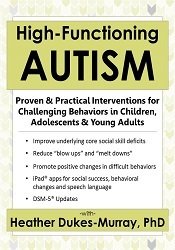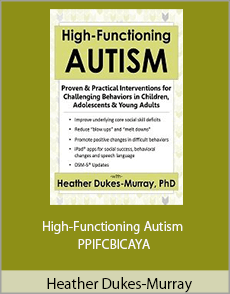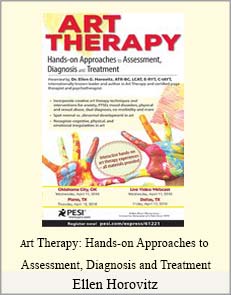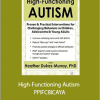Heather Dukes-Murray – High-Functioning Autism – PPIFCBICAYA
$45.00$219.99 (-80%)
Gain valuable insight into common psychotropic medications, including both the helpful effects and potentially problematic side effects, that these individuals are prescribed.
Heather Dukes-Murray – High-Functioning Autism – PPIFCBICAYA

Check it out: Heather Dukes-Murray – High-Functioning Autism – PPIFCBICAYA
Description
This intensive, full day seminar provides proven intervention strategies, essential treatment tools, and behavioral techniques to help you analyze behaviors and actions, identify consequences for behaviors, and teach new skills to children, adolescents and young adults with high-functioning autism (HFA). Walk away with practical intervention techniques for social success, behavior changes and overcoming challenging co-occurring behaviors that deliver success through adulthood. The challenging co-occurring issues to be addressed are:
- Social and communication
- Sensory
- Anxiety/Rigidity/Non-compliance
- ADHD/ADD
- OCD
- Psychotropic medications
Gain valuable insight into common psychotropic medications, including both the helpful effects and potentially problematic side effects, that these individuals are prescribed. We will explore the advantage of pro-social punishment as a new idea to target and help make changes to difficult behaviors.
You will receive the tools necessary to gain effective collaboration between clinicians, educators and parents. Through case studies, video clips and class participation you will leave this seminar with the confidence to identify actions that cause impediments in change, utilize more successful consequences for behaviors, and teach new skills to children, adolescents, and young adults with HFA. Don’t just manage these individuals; provide interventions that can lead to successful independence into their adult years!
Handouts
Webcast Manual (1.89 MB) 67 Pages Available after Purchase
Outline
DSM-5® Changes & Autism
- DSM-IV® and DSM-5®criteria comparisons
- Social (pragmatic) communication disorder
- Impact on service delivery (school/community)
- Successfully link the home, school and therapist
- IEP/504/Do they qualify for school services?
- Co-morbid disorders: Why the difference is important
Social Skills Interventions
- Improve social skill deficits “Kid Cop” behaviors and why other kids get angry How to get peers to recognize them in positive ways Group activities Early intervention programs that can deliver long-term success
Communication Interventions
- Ways to work out conflicts that are effective in multiple settings
- Help peers, siblings and parents relate
- Verbal interventions that overload processing
Sensory Interventions
- Self-stimulation (appropriate & inappropriate)
- Sensory strategies to avoid
- Coping/calming techniques that reduce melt downs
- Sensory Diet
Anxiety Interventions
- Anxiety reducing activities
- How anxiety impacts rigidity
- Help them “self-regulate”
- Successful transitions
ADHD Interventions
- ADHD vs. hyper-focus
- Commonly prescribed medications and possible benefits and side effects
- Specific triggers and what fuels the rage
- Reduce aggressive and disruptive behaviors
- Mistakes that escalate defiant behaviors
- Overcome refusals to comply with even simple requests
Obsessive-Compulsive Disorder (OCD) Interventions
- What to do when they become stuck on high interest areas
- Specific medication interventions
- Impact on socialization and behaviors
Interventions for Specific Difficult Behaviors
- Reduce Internet and electronic addictions
- Changes in technology, school systems and mental health delivery
Psychopharmacological Interventions
- Differentiate among common medications
- Medications that mimic difficult behaviors
- Side effects and off label use
- Impact of eating, sleeping and hormones on medication effectiveness
Case Studies, Demonstrations & Activities
- Case studies that demonstrate specific interventions for aggressive and non-complaint behaviors
- “Reminder video” technique: A way to facilitate behavioral rehearsal
- iPad® apps for social success, behavioral changes and speech and language
- Staff training techniques to experience what an individual on the spectrum might
Faculty

Heather Dukes-Murray, PhD
Heather Dukes-Murray, PhD, is a Licensed Clinical Psychologist at Daily Behavioral Health. She specializes in assessing, diagnosing, and treating autism. Dr. Dukes-Murray conducts social skill groups for children and adolescents diagnosed with autism spectrum disorder, social pragmatic communication disorder, attention-deficit/hyperactivity disorder, and anxiety disorders. She also has significant experience treating children and adolescents with mood and anxiety disorders, behavior issues, and mental health difficulties associated with trauma exposure. Dr. Dukes-Murray provides effective treatment strategies and interventions utilizing evidence-based practices, clinical expertise, and client and parent input. In addition to her clinical skills, she excels at presenting complex information in a manner accessible to audiences with a variety of backgrounds and expertise levels. Dr. Dukes-Murray earned her Ph.D., in Counseling Psychology from the University of Georgia in 2011.
Speaker Disclosure:
Financial: Heather Dukes-Murray has an employment relationship with Daily Behavioral Health. She receives a speaking honorarium from PESI, Inc.
Nonfinancial: Heather Dukes-Murray has no relevant nonfinancial relationship to disclose.






















